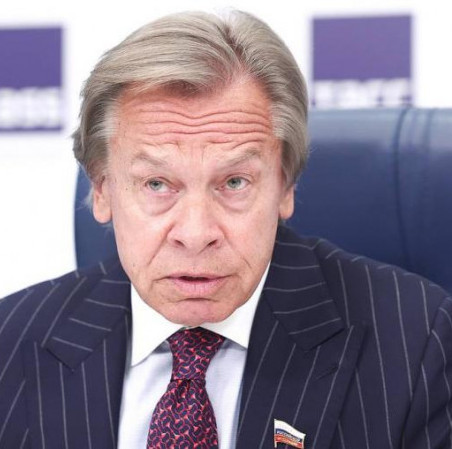
In case of Brexit (Britain's exit from the European Union), the British political elite did not even suspect they had spurred a chain reaction, which is very likely to entail a collapse of the United Kingdom at the end of the day. It is quite obvious for the time being that London made a fatal flaw when deciding to quit. Not only has this whole idea of leaving the EU led to a deep political crisis in the country but this decision may be followed by a collapse of the UK, with Scotland and Northern Ireland leaving it.
The fate of the country's unity will largely depend on the Brexit option, i.e. "soft" or "hard" (with or without an agreement with the EU). At the moment, the situation around Brexit is somewhat stalled, because the country's ruling Conservative Party (the Tories) is voting to choose the party leader, who will automatically become the new Prime Minister of the UK to replace Theresa May. The results of the vote should be announced on July 23, and the very next day May will hand the reins over to her successor. The most likely candidate is former Foreign Secretary Boris Johnson, who is so far outperforming his archrival Jeremy Hunt – the current head of the Foreign Office.
It is worth reminding that the Brexit referendum was held in Britain on June 24, 2016, with supporters of leaving the EU winning by a slim margin of 51.8 per cent against 49.1 per cent. It is important to note that the population of Scotland and Northern Ireland voted against Brexit – 62 per cent and 55.8 per cent respectively. But hardly anybody took heed to their voices in London, as the majority of the United Kingdom's population lives in England and Wales where people mostly voted to leave the European Union.
As a result, the country did split into two camps back then already – those supporting and those opposing Brexit. As the days grow longer, the storms are stronger. In June 2017, the process of developing the country's exit from the EU was launched, and London started negotiating with Brussels on a Brexit agreement. By November, the 585-page document had been completed and submitted to the House of Commons of the British Parliament. But the lower house MPs had thrice rejected this version of the agreement.
And the main reason for that was its failure to take the interests of Scotland and Northern Ireland into account, as both Edinburgh and Belfast had repeatedly told London. But while the interests of Belfast were at least discussed in the course of Brexit negotiations, no one even dropped a hint of Edinburgh's interests. It is small wonder in this regard that the British Parliament with its many representatives from Scotland and Northern Ireland has eventually failed to approve the agreement between London and Brussels.
MPs demand amendments concerning arrangements on a border between Northern Ireland and the Republic of Ireland, which remains "transparent" today. However, this problem is still to be solved, because the European Union supports the establishment of such a border. Another unclear issue is whether Scotland and Northern Ireland will remain part of the EU Customs Union, much less the entire United Kingdom.
In consequence of these contradictions, the United Kingdom failed to withdraw from the EU on time, that is on March 29, 2019; Theresa may resigned, and Brexit itself was postponed until October 31 this year. And this will apparently happen, because Boris Johnson, the most likely Prime Minister candidate, said the other day that Britain will leave the European Union "on Halloween", whether with an agreement or without it. Johnson himself is a hard Brexit advocate. And this will most probably be the case, because Brussels adamantly refuses to revise the terms of the deal already reached with London. This fact will undoubtedly enhance the centripetal forces within the Kingdom itself.
These processes are already underway. Suffice it to say that the latest opinion polls carried out in Scotland reveal an increase in the number of people supporting the separation from the UK – today their number stands at 49 per cent. However, the Scots want to stay within the EU, because it is their primary market in a variety of areas, particularly the sales of whiskey. Similar sentiments are expressed in Northern Ireland, where the number of voices supporting the withdrawal of their Kingdom and reunification with the Republic of Ireland is on the rise. After Brexit, Belfast does not want to isolate itself behind thick walls from its fellow people. Neither seeks it to break up with the European Union.
Scotland and Northern Ireland are at least still willing to insist on their "special status" within the EU. However, it should be noted that Brussels is not quite so keen to give heed to their demands, much less to have the independent states of Scotland and Northern Ireland joining the EU ranks. And this once again suggests that the union's bureaucracy is still quite strong and conservative.
In short, the United Kingdom is facing a tough time, and it is entirely possible that Scotland and Northern Ireland will experience another wave of mass protests as a mark of dissent with the policy of the country's new government, unable to solve people's problems and defend their interests in the European Union.


